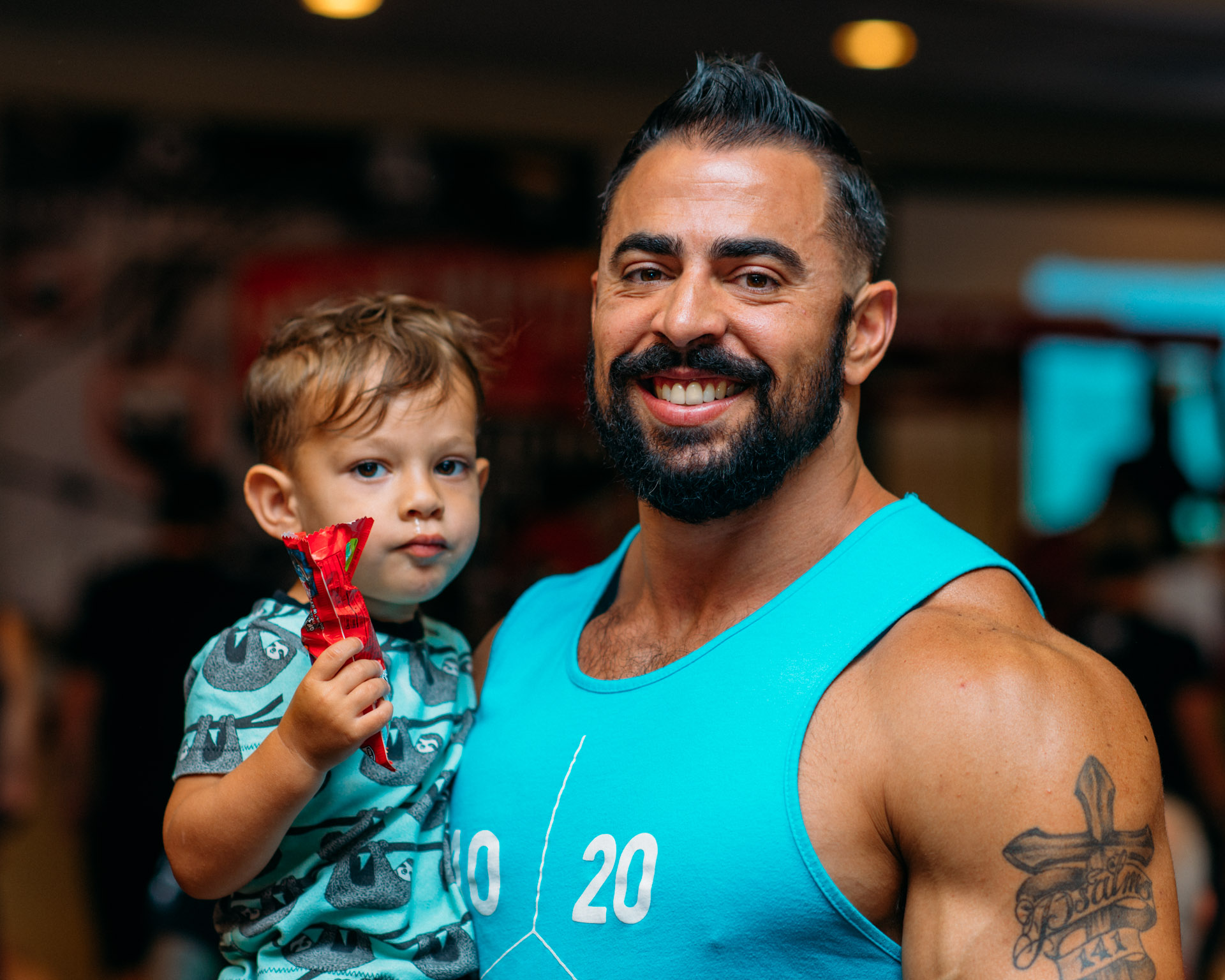
02 Oct Are You Living a Healthy Life?
By: Danny Vega
Team PRS has been writing a lot about health lately—how and why you should train smart and work to minimize the risk of injury, the benefits of treating food as fuel vs being a glutton, etc. Not only are these topics important to us, but it just seems like so many people are missing the point on these things and ending up in situations that can easily be prevented. Our goal is to make you think about these things. If you are a powerlifter, you want a bigger total. Period. However, there are other factors that seem unrelated but can and will affect that goal.
[wa-wps]
Your “bulging disc” (read: herniated) didn’t just happen overnight. Your inability to walk a few flights of stairs without getting winded didn’t just come out of nowhere. Your struggling relationship with your spouse can probably be traced back a few months or maybe years. So if you really do want to live a healthy life, AND reach all your performance goals, here are a few things to think about.
Training
Let’s start with the easiest one first. If you are reading this, chances are you are doing some type of exercise, and maybe even competing. If you are a powerlifter, you are probably lifting 3-4 days a week, focusing on weak points and hitting some hypertrophy work to bring up all the muscles used in your lifts. Good for you. However, just as important is your cardiovascular health. You don’t have to become a cardio bunny, but bare minimum you should be going for 20-30 minute brisk walks 4-5 days a week, and even doing some sled dragging or prowler as well. If you are in meet prep, you may decrease it to 2-4 days. Doing something so easy will not affect your recovery, but it will help you keep a minimum level of fitness year round. Walking is also a great way to clear your mind, brainstorm, or relieve some stress, which we will talk more about later.
Diet
This has become THE most important subject for me over the last year. I have made it no secret that I now prefer the low carb approach, because personally, it has led to some of the most profound changes in my health, how I physically feel and how I perform mentally. Some others, like Brian, have used low carb to drastically improve their relationships with food and beat food addictions. Most of us athletes have unhealthy relationships with food. It sounds like a bold statement but I see it all the time. Body dysmorphia, extreme dieting and cutting, “dirty bulking”, proudly posting binges on social media, etc. It’s cool to eat like a slob now. I understand the low carb approach is not for everyone, but I will say this. Even my teammates who are extremely high carb (take Tucker Loken for instance) are strategic and put a lot of thought into what they eat. One thing I learned from Tucker when we worked together on the diet portion of the Powerbuilding e-book is that even when you are eating high carb, the carb sources should mostly come from whole foods, and sugar consumption should be minimized as much as possible. You want to eat a bunch of donuts and ice cream, a pizza, or a box of cookies with a gallon of milk? Go ahead. But do not pretend like it’s helping your performance. Pay close attention to what you are eating and how it affects you. Put some thought into it. A minimum amount of sugar is needed for your body to function. On average, the amount of sugar in your blood is about 5-10 grams, which is 1-2 teaspoons. Think about that the next time you drink a 12 ounce can of coke that has close to 10 times that amount, and then think about the amount of sugar you consume in a day. It’s no wonder the amount of people with diabetes and metabolic disorders has increased over 15 fold in the last twenty or so years. If you are doing everything right in training and neglecting your diet, you are not living a healthy life.
Relationships
Now we are really striking a nerve. Most of us who compete and are in a relationship can attest to the fact that sometimes other aspects in our lives take a back seat. This is normal. If you are a college football player and done with your classes for the day, it’s time to mentally prepare for practice. There’s no time to be snuggling with your girlfriend. You flip the switch. Same thing goes for game day or the week leading up to a big competition. However, you need to turn it off. I am as guilty of not doing this as anyone. Brian and I talk often about how we have to make a concerted effort to make sure we are giving our spouses what they need emotionally and in other aspects. I am a husband and father over anything else. I couldn’t care less about a PR or any accolades if it is going to mess with my relationship with my wife or family. If you are training hard, eating right and not paying attention to your relationships, you are not living a healthy life.
Managing Stress
At this point, you should realize that a lot of these areas affect the other areas. Exercise reduces stress. Eating the right foods prevent hormone fluctuations that can affect your mental and physical performance. Not carrying emotional baggage into the weight room or onto the field is crucial to anyone who wants to perform their best. Additionally, you need to spend some time actually focusing on minimizing stress. You can use the walks I mentioned earlier to clear your head. You can also spend 10 minutes every morning contemplating the day ahead, meditating or in prayer. Brian and I, along with a few other teammates, send each other bible verses and words of encouragement every single morning. If it is getting later in the morning and no one has said anything, someone speaks up. At night, you should work hard to minimize external stressors as well. Keep your home cool and dark at night. Wear blublockers if you have to and minimize the amount of blue light (tv, phone, etc) which can increase cortisol levels and affect your sleep. If you are doing all of these other things, managing stress is just as important for you to be living a healthy life.
Final Thoughts
I would put this last category in as extra credit. Working with Tony Cowden and following his training (and his philosophy on life in general) has led me to think about a few things differently. We should all try to do things out of our comfort zone as often as possible. This is how we grow. For me most recently, this has meant going back outside and running. Sprinting after lifting, etc. And now the newest challenge, preparing to run a half marathon. Eventually I will run an actual marathon. Maybe I will even do a triathlon at some point (I HATE swimming, so that would be REALLY out of my comfort zone). Setting new goals and accomplishing them builds confidence and teaches you more about yourself than just going through the motions and sticking to things that come easy to you. That is what life is all about.
Danny Vega
Latest posts by Danny Vega (see all)
- Danny Vega – High Protein recap and training - November 8, 2017
- Danny Vega – Hypertrophy Experiment UPDATE - October 28, 2017
- Danny Vega – Hypertrophy Week 1 – 1020Life Seminar - October 9, 2017








Sorry, the comment form is closed at this time.